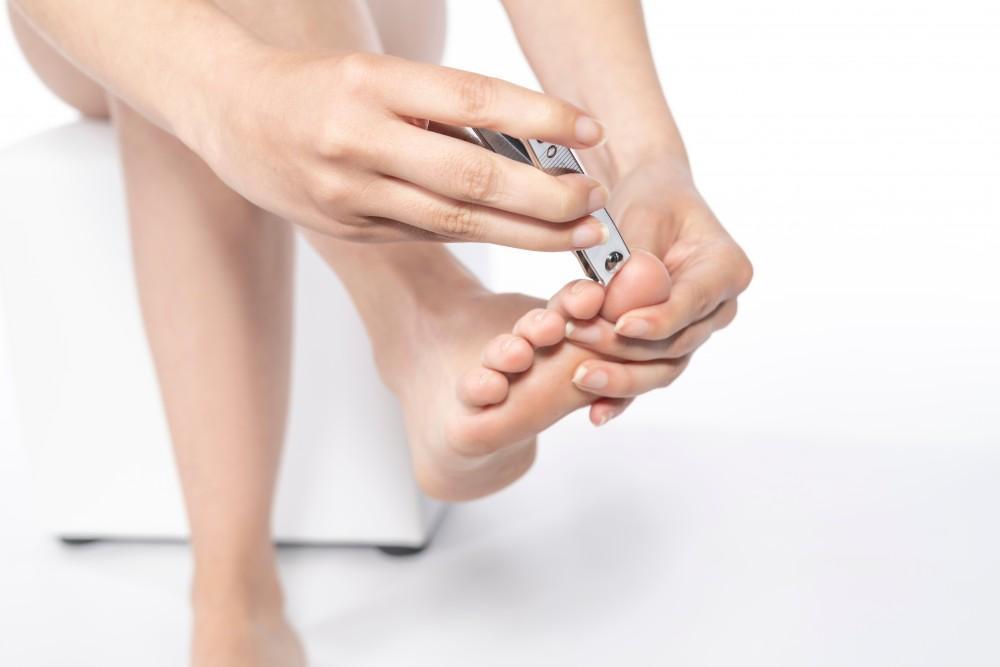
Why You Should Pay Special Attention to Foot Wounds with Diabetes

Diabetes is a chronic medical condition that affects how your body uses or produces insulin, which is necessary to control blood sugar.
When your blood sugar level is consistently high, it wreaks havoc on your body, including your nerves and blood vessels. Diabetes compromises circulation, especially to your legs and feet, leading to slow-healing wounds and ulcers.
Taking care of your feet is essential when living with diabetes, which is why the Family Foot & Ankle Center of South Jersey in Cherry Hill, New Jersey, offers diabetic foot exams and treatments.
Our experienced team of podiatrists takes the time to examine your feet thoroughly and provides you with the resources and tools to keep your feet healthy and infection-free.
Diabetes and your feet
Living with diabetes means you need to take special care of your health and your feet. Chronically high blood sugar affects multiple aspects of your health, including the nerves and blood vessels in your feet and legs.
Nerve damage makes it hard to feel when you injure or cut your leg or foot. If you don't know you have an injury, you won't know to clean it and keep an eye on how it's healing.
Another problem associated with diabetes is poor circulation to your legs and feet, and a wound requires a good blood supply to heal quickly and efficiently.
When you're living with diabetes and have a foot wound, it may be slow to heal due to damaged blood vessels and insufficient blood supply.
The combination of nerve damage and poor circulation is a recipe for disaster when it comes to your legs and feet. You can end up with chronic wounds and severe infections if you're not vigilant about your foot health.
What are foot wounds?
A foot wound is any cut, scrape, or ulcer that appears on your foot or toes. Wounds can be acute or chronic.
Acute foot wounds happen suddenly, like stepping on a nail or cutting your foot on a sharp object. These wounds require immediate attention, especially if you have diabetes, to prevent a chronic wound.
Chronic foot wounds, or ulcers, are slow-healing and may reoccur when living with diabetes. Due to poor circulation and nerve damage, foot ulcers may worsen instead of heal, especially without the proper care.
Complications of foot wounds
Diabetic foot ulcers are one of the main complications of foot wounds. You must check your feet daily because a simple cut can quickly become an ulcer if it goes unnoticed.
Ulcers are extremely slow to heal, putting you at risk for severe infections in your foot and leg. Other than a local infection, you're also at risk for severe complications from an untreated foot ulcer, including:
- Gangrene of the foot and toes
- Permanent foot deformity
- Osteomyelitis, or a bone infection
- Sepsis is a severe infection of your blood
Another major complication of untreated diabetic foot wounds is the risk of amputation. If the wound worsens or you have gangrene or osteomyelitis resistant to treatment, you may need an amputation to prevent further damage to your leg and body.
Checking your feet regularly for cuts and wounds is the best way to prevent severe complications from diabetes and foot wounds.
Keeping your diabetic feet healthy
When you're concerned about your foot health with diabetes, our team can help. We offer foot examinations and the following tips to ensure your feet stay wound-free:
- Check your feet every day
- Never go barefoot
- Wash your feet daily
- Dry them completely
- Wear well-fitted shoes
- Be careful trimming your nails
- Don't remove calluses yourself
- Get your feet checked regularly
You can also help improve circulation to your legs and feet by propping them up while you're sitting and moving your legs or toes around to stimulate blood flow.
Physical activity is another way to keep your feet healthy but check with our team first for activities that are foot-friendly for diabetes.
If you have diabetes and need a foot exam, don't hesitate to call our office in Cherry Hill at 856-667-8222 or book an appointment on our website.
You Might Also Enjoy...


5 Ways to Keep Your Bunion Pain to a Minimum

Gout: What Is It and How Can I Get Rid of It?

Complications of an Untreated Ankle Sprain

Suspect You’ve Broken Toe? How To Tell and What to Do


